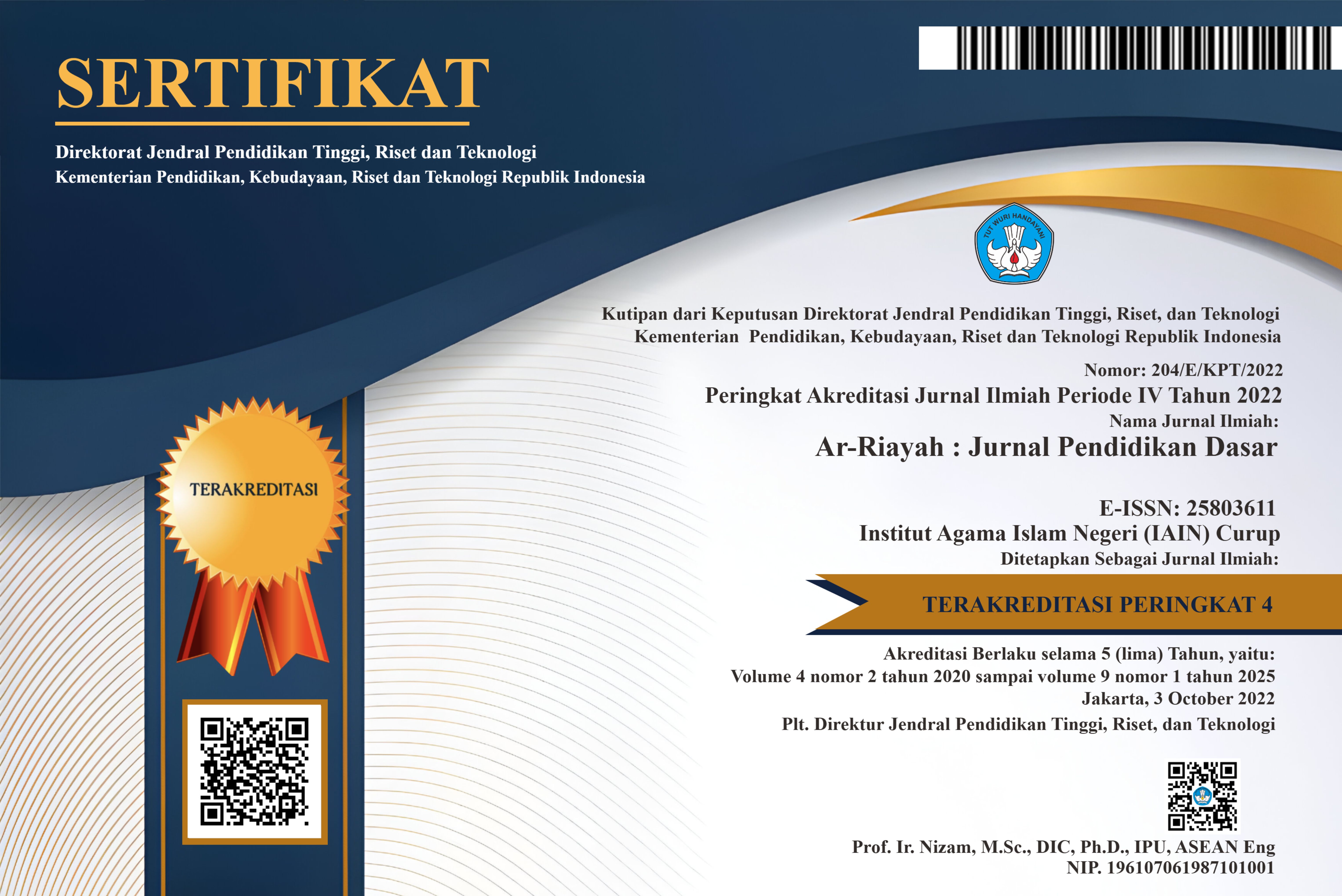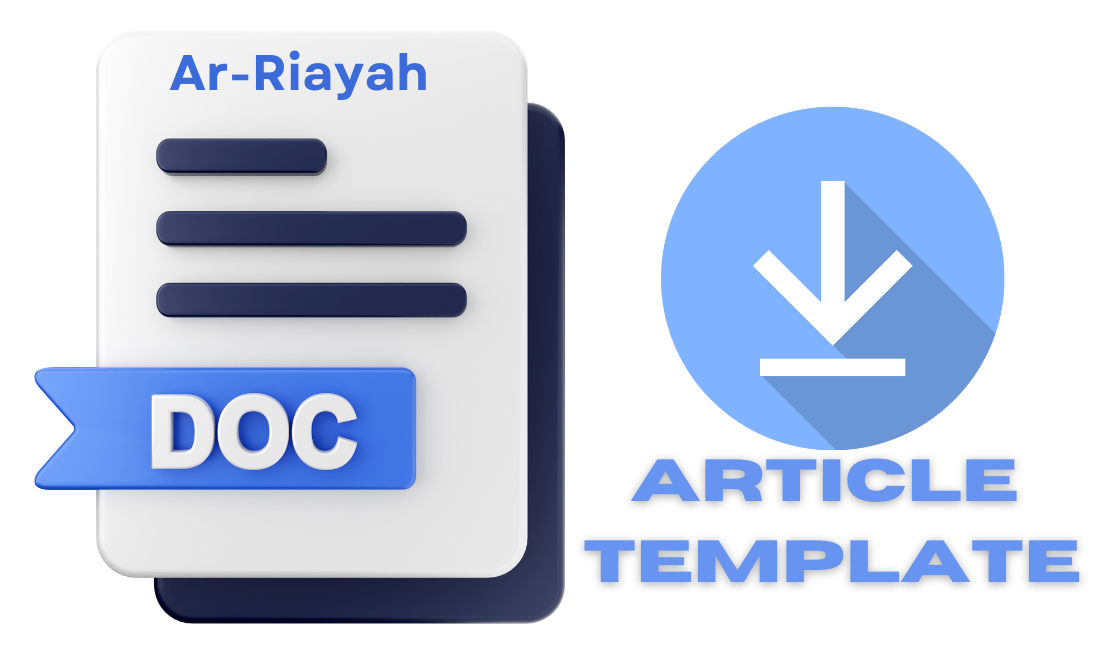Pengaruh Media Pop Up Book Terhadap Hasil Belajar Ilmu Pengetahuan Alam dan Sosial (IPAS) Siswa Kelas V SD Negeri 88 Singkawang
DOI:
https://doi.org/10.29240/jpd.v8i2.10425Keywords:
Pop Up Book, Learning OutcomesAbstract
Learning success is supported by various components, one of which is the use of media. Learning media as a link of interaction in the learning process so that learning is effective for students. One of them uses Pop-Up Book media. The objectives of this study are: 1) to determine the difference in the learning outcomes of social studies students in grade V who use Pop Up Book media and classes that do not use Pop Up Book, 2) to measure the effect of the use of Pop Up Book Media on the learning outcomes of science science students in grade V of SD Negeri 88 Singkawang. A type of quantitative research with experimental methods. Research Design Nonequivalent Control Group Design. The research population of students of Grades VA and VB. The sampling technique uses Total Sampling. The Prerequisite Test uses the Saphiro Wilk Normality Test and the Homogeneity Test. Hypothesis testing, Independent Sample t-test and Effect Size Test. The results showed that 1) the average score of the posttest of the experimental class was 56.09 higher than the result of the control class which was 40.00. In addition, it can be seen that the output of the Independent sample t-test has an Equal Variances assumed significance value of 0.004 ˂0.05, it can be concluded that there is a difference in the learning outcomes of classes using Pop Up Books and classes not using Pop Up Books. 2) Pop Up Book has a high effect on the learning outcomes of science science students in grade V with the result of the Effect size = 0.94 which is in the High criterion.
Downloads
References
Andreani, Delina, and Ganes Gunansyah. 2023. “Persepsi Guru Tentang IPAS Pada Kurikulum Merdeka.†Jpgsd 11 (9): 1841–54.
Indah Sylvia, Nur, and Sri Hariani. 2015. “Pengaruh Penggunaan Media Pop-Up Book Terhadap Keterampilan Menulis Narasi Siswa Sekolah Dasar.†Jpgsd 03: 1196.
M. Andi Setiawan, M.Pd. 2017. BelajAR DAN PEMBELAJARAN. uwais inspirasi indonesia.
Masturah, Elisa Diah, Luh Putu Putrini Mahadewi, and Alexander Hamonangan Simamora. 2018. “Pengembangan Media Pembelajaran Pop-up Book Pada Mata Pelajaran IPA Kelas III Sekolah Dasar.†Jurnal EDUTECH Undiksha 6 (2): 212–21.
Putri, Septi Dwi, and Desy Eka Citra. 2019. “Problematika Guru Dalam Menggunakan Media Pembelajaran Pada Mata Pelajaran IPS Di Madrasah Ibtidaiyah Darussalam Kota Bengkulu.†IJSSE: Indonesian Journal of Social Science Education 1 (1): 49–54.
Sugiyono. 2015. Metode Penelitian Kuantitatif Kualitatif Dan R&D. Bandung: Alfabeta
Sugiyono, (2017). Metode Penelitian Kuantitatif, Kualitatif, dan R&D. Bandung: CV. Alfabeta.
Sugiyono. 2018. Metode Penelitian Kuantitatif, Kualitatig, dan R&D, penerbit Alfabeta,Bandung
Wati, Elis Trisdiana, and Ulhaq Zuhdi. 2017. “Pengaruh Media Pop-up Book Terhadap Hasil Belajar Siswa Tema Ekosistem Kelas V SDN Karangpilang 1 Surabaya.†Jurnal Penelitian Pendidikan Guru Sekolah Dasar 5 (3): 254557.
Downloads
Published
How to Cite
Issue
Section
Citation Check
License
Copyright (c) 2024 HENGKI HENGKI, Mertika Mertika, Dewi Mariana

This work is licensed under a Creative Commons Attribution-NonCommercial-ShareAlike 4.0 International License.
Authors who publish with Ar-Riayah: Jurnal Pendidikan Dasar agree to the following terms:
Authors retain copyright and grant the journal right of first publication with the work simultaneously licensed under a Creative Commons Attribution-NonCommercial-ShareAlike 4.0 International License (CC BY-NC-SA 4.0) that allows others to share the work with an acknowledgment of the work's authorship and initial publication in this journal.
Authors are able to enter into separate, additional contractual arrangements for the non-exclusive distribution of the journal's published version of the work (e.g., post it to an institutional repository or publish it in a book), with an acknowledgment of its initial publication in this journal.
- Authors are permitted and encouraged to post their work online (e.g., in institutional repositories or on their website) prior to and during the submission process, as it can lead to productive exchanges, as well as earlier and greater citation of published work (See The Effect of Open Access).










